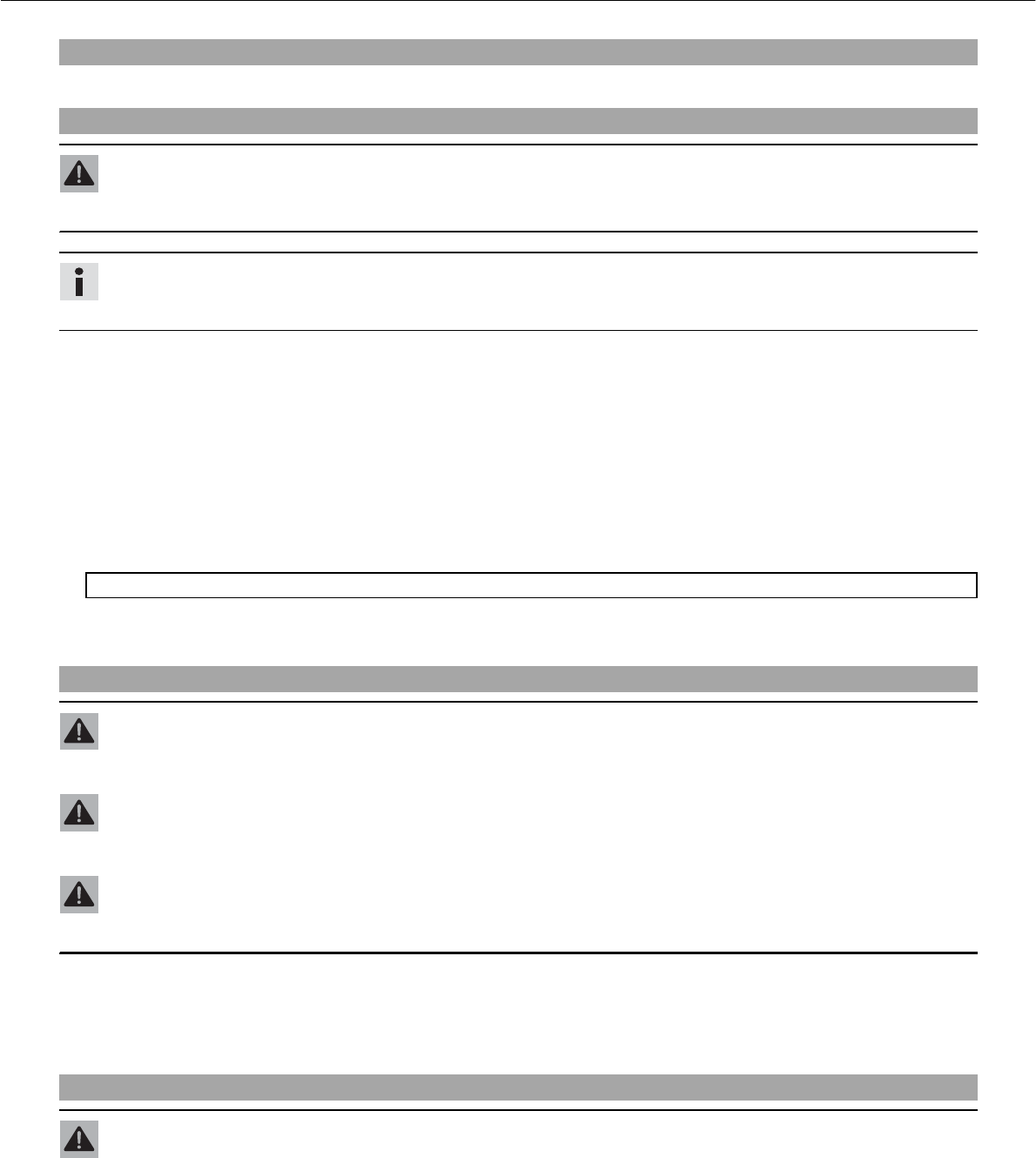
RIDING INSTRUCTIONS 16
Starting up
ಥ Pull the clutch lever, engage 1st gear, release the clutch lever slowly and simultaneously open the throttle carefully.
Shifting, riding
Warning
Danger of accidentsಗIf you change down at high engine speed, the rear wheel can lock up.
ಥ Do not change into a low gear at high engine speed. The engine races and the rear wheel can block.
Info
If you hear unusual noises while riding, stop immediately, switch off the engine and contact an authorized KTM workshop.
First gear is used for starting off or for steep inclines.
ಥ When conditions allow (incline, road situation, etc.), you can shift into a higher gear. To do so, release the throttle while simulta-
neously pulling the clutch lever, shift into the next gear, release the clutch and open the throttle.
ಥ If the choke function was activated, deactivate it after the engine has warmed up.
ಥ When you reach maximum speed after fully opening the throttle, turn back the throttle to about 3/4 of its range; the speed hardly
drops, but the fuel consumption falls considerably.
ಥ Always open the throttle only as much as the engine can handle ಥ abrupt throttle opening increases fuel consumption.
ಥ To shift down, brake if necessary and close the throttle at the same time.
ಥ Pull the clutch lever and shift into a lower gear, release the clutch lever slowly and open the throttle or shift again.
ಥ Switch off the engine if you expect to be standing for a long time.
Specification
싩2min
ಥ Avoid frequent and longer slipping of the clutch. This heats the engine oil, the engine and the cooling system.
ಥ Ride with a lower engine speed instead of with a high engine speed and a slipping clutch.
Braking
Warning
Danger of accidentsಗIf you brake too hard, the wheels can lock.
ಥ Adapt your braking to the traffic situation and the road conditions.
Warning
Danger of accidentsಗReduced braking caused by spongy pressure point of front or rear brake.
ಥ Have the brake system checked in an authorized KTM workshop, and do not ride any further.
Warning
Danger of accidentsಗReduced braking due to wet or dirty brakes.
ಥ Clean or dry dirty or wet brakes by riding and braking gently.
ಥ On sandy, wet or slippery surfaces, use the rear brake.
ಥ Braking should always be completed before you go into a bend. Change down to a lower gear appropriate to your road speed.
ಥ On long downhill stretches, use the braking effect of the engine. Change down one or two gears, but do not overstress the engine.
In this way, you have to brake far less and the brakes do not overheat.
Stopping, parking
Warning
Danger of burnsಗSome vehicle components get very hot when the machine is driven.
ಥ Do not touch hot components such as exhaust system, radiator, engine, shock absorber and brakes. Allow these compo-
nents to cool down before starting work on them.
Note
Danger of damageಗDanger of damage by the vehicle running away or falling over.
ಥ Always place the vehicle on a firm and even surface.


















